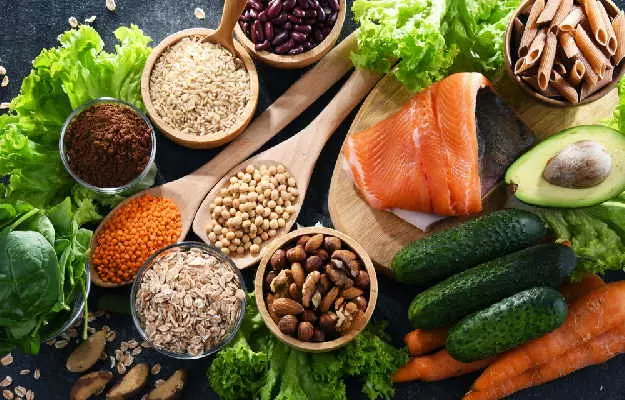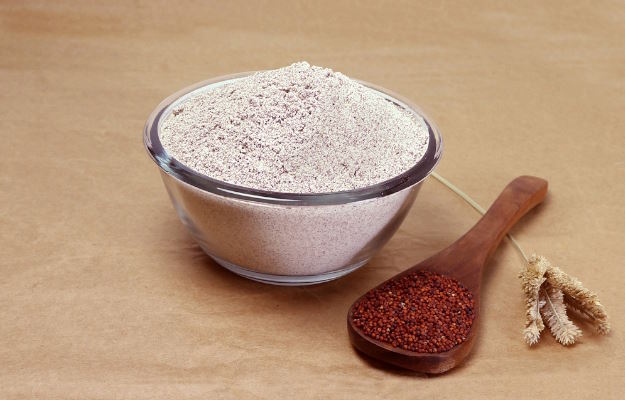While many foods can help lower blood sugar, some may be more effective than others. However, factors like body weight, activity, stress and genetics also play an important role in regulating blood sugar, so it is important to follow a healthy diet for blood sugar management.
Some foods in our diets, including those that contain high amounts of sugar and refined carbs, contribute to blood sugar fluctuations in the body, while other certain foods help optimize blood sugar regulation, promoting overall health.
Here we are talking to you about some foods that can help in controlling blood sugar.
Read more - (10 Home Remedies for Diabetes)
Foods to Reduce Blood Sugar
1. Broccoli and Broccoli Sprouts
Broccoli contains sulforaphane, a type of isothiocyanate that has blood sugar-lowering properties. It is produced through an enzyme reaction when broccoli is cut or chewed. Test-tube, animal, and some human studies have shown that sulforaphane-rich broccoli has powerful antidiabetic effects, helping to increase insulin sensitivity and reduce blood sugar and oxidative stress.
Broccoli sprouts are a concentrated source of glucosinolates such as glucoraphanin. Research shows that taking supplements in powder or extract form helps boost insulin sensitivity and lower blood sugar levels in people with type 2 diabetes. The best way to increase sulforaphane availability is to eat broccoli and sprouts raw or lightly cooked.
2. Seafood
Seafood, including fish and shellfish, is a valuable source of protein, healthy fats, vitamins, minerals and antioxidants that help control blood sugar levels. Protein is very important for blood sugar management. It helps slow digestion, prevent a rise in blood sugar after meals, and increases the feeling of satiety. Additionally, eating it reduces cravings for overeating and can help promote excess body fat loss.
Consuming fatty fish like salmon and sardines may improve blood sugar regulation.
Read more - (Can type 2 diabetes cause heart problems)
3. Pumpkin and Pumpkin Seeds
Rich in fiber and antioxidants, pumpkin is a great choice for blood sugar regulation. Pumpkin is a traditional diabetes remedy in countries such as Mexico and Iran.
Pumpkins are high in carbs called polysaccharides, which have been studied for their blood sugar-regulating abilities. Pumpkin extract was given in both human studies and animal studies and showed significant reductions in blood sugar levels.
A small 2018 study with 40 participants found that consuming 2 ounces (about 65 grams) of pumpkin seeds reduced post-meal blood sugar by up to 35%.
4. Nuts and Nut Butter
Research has shown that eating nuts is an effective way to help control blood sugar levels. In a small study of 25 people with type 2 diabetes, consuming both peanuts and almonds throughout the day as part of a low-carb diet reduced after-meal blood sugar levels.
5. Ladyfinger
Ladyfinger is commonly used as a vegetable. It is heavy with blood sugar-lowering compounds such as polysaccharides and flavonoid antioxidants.
Okra seeds may be beneficial as a natural remedy for diabetes due to their powerful blood sugar-lowering properties. Okra contains the flavonoids isoquercitrin and quercetin 3-O-gentiobioside, which help lower blood sugar by inhibiting certain enzymes.
Read More - (Is milk good for diabetic patient?)
6. Linseed
Flaxseed is rich in fiber and fat and can help reduce blood sugar levels.
57 people with type 2 diabetes who were given 2.5% fat yogurt containing 30 grams of flaxseed per day for 8 weeks experienced a reduction in HbA1c.
7. Beans and lentils
Beans and lentils are rich in magnesium, fiber and protein. These nutrients may help lower blood sugar. They contain particularly high amounts of soluble fiber and starch, which help slow digestion and may improve blood sugar response after meals.
A study conducted on 12 women observed that adding black beans or chickpeas to the diet significantly reduced post-meal blood sugar levels compared to eating rice alone.
8. Kimchi and Sauerkraut
Fermented foods like kimchi and sauerkraut contain health-promoting compounds, including probiotics, minerals and antioxidants.
A 2021 review concluded that probiotic foods had a strong effect on blood sugar regulation in people with type 2 diabetes. The researchers noted that these foods had the greatest impact on people whose diabetes was not well managed and who were not on insulin therapy.
Read more
9. Chia Seeds
Eating chia seeds may benefit blood sugar control. Some studies link chia seed consumption to decreased blood sugar levels and improved insulin sensitivity.
Read more - (Can Diabetics Eat Sweets?)
10. Kale
People often call kale a superfood. It contains several compounds that may help lower blood sugar levels, including fiber and flavonoid antioxidants. A study involving 42 Japanese adults showed that consuming foods containing 7 or 14 grams of kale with a high-carb meal significantly reduced post-meal blood sugar levels compared to a placebo.
Research has shown that the flavonoid antioxidants found in kale, including quercetin and kaempferol, have powerful blood sugar-lowering and insulin-sensitizing effects.
11. Berries
Several studies link berry consumption to better blood sugar regulation. Berries contain fiber, vitamins, minerals, and antioxidants, and all of this makes them an excellent choice for people with blood sugar management problems.
In addition to raspberries, studies have shown that strawberries, blueberries, and blackberries may benefit blood sugar management by increasing insulin sensitivity and improving glucose clearance from the blood.
12. Avocado
Avocados may provide important benefits for blood sugar regulation. These are rich in healthy fats, fiber, vitamins, and minerals, and adding them to meals may improve blood sugar management.
Several studies have shown that avocado prevents the development of metabolic syndrome through lowering blood sugar levels and fat loss.
Read more - (Diabetes effect on heart, complications and solution)
13. Oats and Oat Bran
Oats contain high soluble fiber which improves blood sugar levels.
An analysis of 16 studies found that oat consumption significantly reduced HbA1c and fasting blood sugar levels.
Additionally, a small study of 10 people found that drinking 1 ounce of oat bran mixed with 7 ounces of water before eating white bread significantly reduced post-meal blood sugar compared to drinking plain water.
14. Citrus fruits
Although citrus fruits contain natural sugars, they are considered low to medium on the glycemic index. Citrus fruits are also good sources of vitamins, minerals and fiber.Citrus fruits like oranges and grapes are full of fiber.
Eating whole citrus fruits may help improve insulin sensitivity, lower HbA1c, and prevent diabetes.
15. Kefir and yogurt
Kefir and yogurt are fermented dairy products that may help control blood sugar.
An 8-week study of 60 people with type 2 diabetes showed that drinking 600 ml of kefir, a probiotic-rich yogurt drink, per day significantly reduced blood sugar and HbA1c compared to drinking kefir without probiotics. Consumption of curd can also reduce the risk of type 2 diabetes.
Read more - (How Does Diabetes Develop Over Time)
16. Eggs
Eggs are a concentrated source of protein, healthy fats, vitamins, minerals and antioxidants. Some studies have linked egg consumption to better blood sugar regulation.
A study of 42 adults with overweight, obesity, and prediabetes or type 2 diabetes showed that eating one large egg per day reduced fasting blood sugar by 4.4%.
17. Apple
Apples contain soluble fiber and plant compounds, including quercetin, chlorogenic acid and gallic acid, which may help lower blood sugar and protect against diabetes.





























